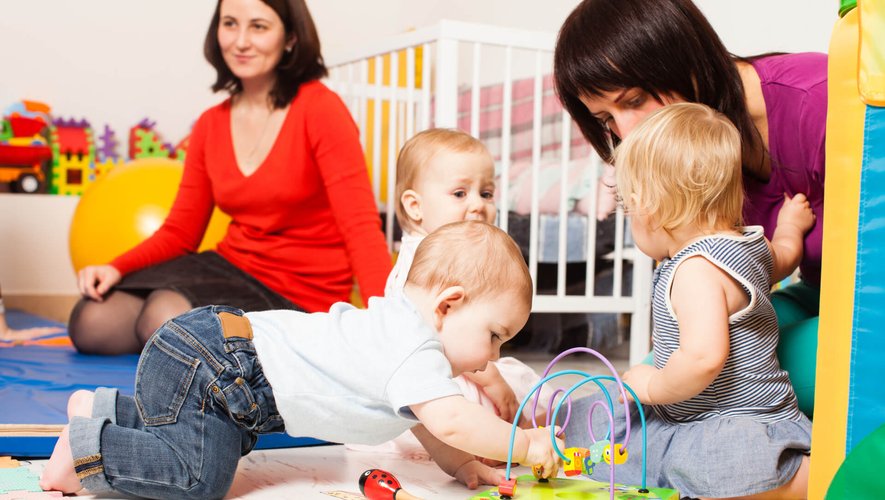The adaptation to a crèche or to the childminder is fast approaching. And even if you are ready to return to work, you dread this separation of a few hours during the day. Here are some tips for making the most of this beautiful transition.
For the first times in the world of babies, parents are often the most impressed. At the very beginning of their life, the little ones are indeed often much more adaptable and flexible in the face of novelty than the big ones. Thus, when it comes to dropping off your child for the first time with the childminder or the crèche, many of us feel moderately serene, a little feverish or even feel the tears rising slightly.
And this even if our reason knows how to come to the surface to remind us that he or she is in good hands. During this time, Baby often has less difficulty getting used to new arms that take care of him, to new faces, those of the referring adults and other toddlers kept with him. Especially if this stage occurs when your child is only a few months old.
How do you explain the fact that you are not reassured at the idea of keeping it? “First steps are scary for some new parents“, explains Frédéric Groux, nursery psychologist, on the site lesprosdelapetiteenfance.fr. The human factor counts for a lot when it comes to entrusting your child to another adult: “this emotion is the resonance of trivial details unrelated to professional ability: the sound of the voice, height and sometimes even age “, continues the psychologist. “We return to the psychic intimacy of the parent, that is to say, a person will make him think unconsciously of another person. It will be an identification with the grandmother – if the referent is old or if the voice is deep or strong – or with the witch who is likely to frighten… Perhaps she is not gentle? If the professional has an attitude that does not correspond to the family (too much or not dynamic enough), the parents will show signs of mistrust and defence.“
Other points: “during the adaptation, as a parent, you rediscover your child. This awareness will activate your bond of attachment to your baby. The first times of separation will indicate the place he has taken in life but also in your thoughts. “, continues Frédéric Groux. This can explain the occurrence of intense and varied emotions. The break in the routine can also explain the reasons why some parents will be idle at the idea of having their child looked after: “the parents are sensitive because they live around the baby with an infant rhythm.“
Freedom, exchanges, rituals
How can you relax at the idea of leaving him with the nanny or at the crèche?
- Take the time to ask all your questions to the childminder or the nursery referent : a daily check-up is part of the routine, and you may have the possibility of asking the childminder (more complicated in the nursery!) to receive a call or a text message to reassure you during the first days of childcare
- You remember freedom there is behind the fact that your child is looked after: in your professional life, in your social life without children and other sporting activities, you will be able to find a semblance of tranquility, time just for you. Knowing that you will have the pleasure of picking up your little one at the end of the day. Behind everything is missing… the joy of reunion!
- Do you plan a little ritual after dropping off your child and moving on to something else: a piece of music, a page of reading, a short walk, a bike ride, a coffee on the terrace, a sports session, meditation… anything goes!
- Talk with other parents in the same case, who may sometimes be more serene and can send you their good vibes. And if they’re worried like you, it can be good to share common emotions. You can also raise the subject with other parents who have been there, more or less recently: a good way to feel less alone in this situation which often arises.
- Talk to your midwife, your doctor, your child’s pediatrician, taking advantage of routine consultations, if you feel the need to share your feelings with a professional.

